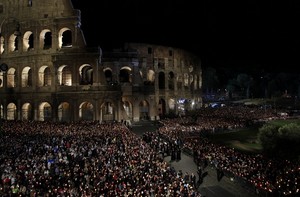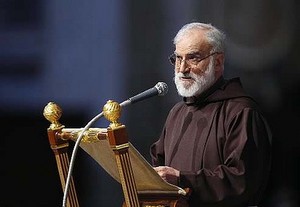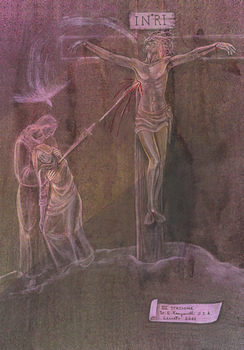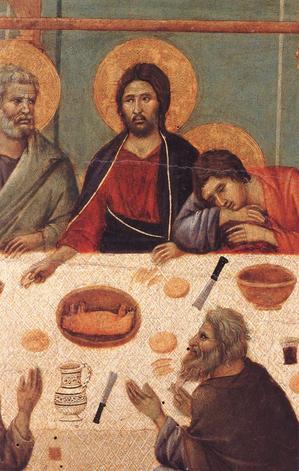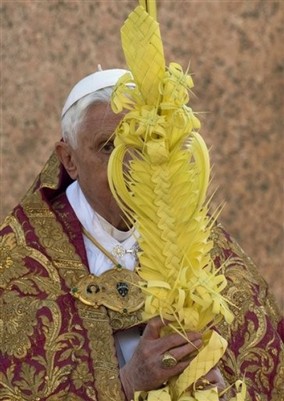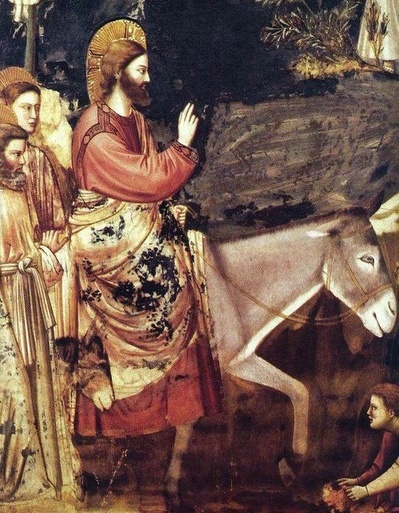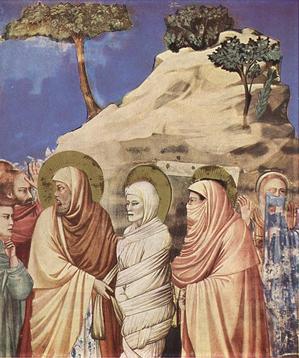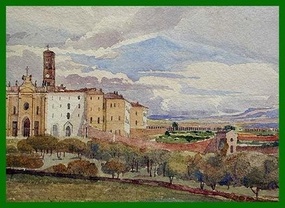All week many of us who work in a parish have kept the events of Holy Week in front of us. Mostly because of the work that needs to be done in preparing the sacred Liturgy. Sadly, not enough time for prayer. Reminder: Palm Sunday of the Lord's Passion is this weekend, it is not only the liturgical memorial of the Lord's move to Jerusalem, it is also our hour of judgment. Jesus is not one among many saviors. Jesus is THE Messiah, the Son of Man, the Son of God who opens the door to God the Father and redeems us. No one, absolutely no one, can avoid the Lord's hour of supreme love and self-giving in dying on the cross. It is, for us Christians, the tree of life.
Too many people these days have difficulty in accepting a positive view of Christ dying on the cross. Far from their hearts are Pope Leo's words: "How marvelous the power of the cross; how great beyond all telling the glory of the passion." Here's Pope Saint Leo the Great's
Sermon on the Passion:
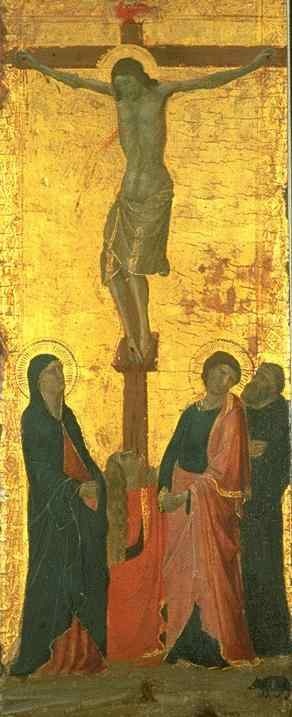
Our understanding, which is enlightened by the Spirit of
truth, should receive with purity and freedom of heart the glory of the cross
as it shines in heaven and on earth. It should see with inner vision the
meaning of the Lord's words when he spoke of the imminence of his passion: The
hour has come for the Son of Man to be glorified.
Afterward he said: Now my
soul is troubled, and what am I to say? Father, save me from this hour. But it
was for this that I came to this hour. Father, glorify your Son. When the voice
of the Father came from heaven, saying, I have glorified him, and will glorify
him again, Jesus said in reply to those around him: It was not for me that this
voice spoke, but for you. Now is the judgment of the world, now will the prince
of this world be cast out. And I, if I am lifted up from the earth, will draw
all things to myself.
How marvelous the power of the cross; how great beyond
all telling the glory of the passion: here is the judgment-seat of the Lord,
the condemnation of the world, the supremacy of Christ crucified.
Lord, you
drew all things to yourself so that the devotion of all peoples everywhere
might celebrate, in a sacrament made perfect and visible, what was carried out
in the one temple of Judea under obscure foreshadowings.
Now there is a more
distinguished order of Levites, a greater dignity for the rank of elders, a
more sacred anointing for the priesthood, because your
cross is the source of all blessings, the cause of all graces. Through the
cross the faithful receive strength from weakness, glory from dishonour, life
from death.
The different sacrifices of animals are no more: the one offering of
your body and blood is the fulfillment of all the different sacrificial
offerings, for you are the true Lamb of God: you take away the sins of the
world. In yourself you bring to perfection all mysteries, so that, as there is
one sacrifice in place of all other sacrificial offerings, there is also one
kingdom gathered from all peoples.
